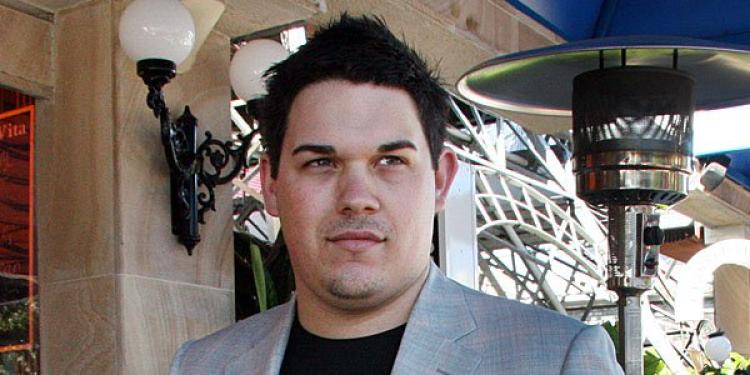The Unbelievable Story of the Man Who Built and Destroyed Online Poker in America
Posted: April 30, 2014
Updated: October 4, 2017

A new book tells the story of the young computer geek who helped build online poker in the US, then caused its fall.
By the time he was 25, Daniel Tzvetkoff had made $80 million. For a while, he lead a life of cocaine, hookers, private jets and yachts, but all the fame and fortune was too much to handle and things took a wrong turn. Titled “Alligator Blood” – after a slang used in poker to describe a fearless player – James Leighton’s novel tells the story of the rise and fall of the Australian “programming geek”.
He had his own private jet, drove Lamborghinis, Bentleys and Ferraris, had mansions worth millions and threw wild parties in Las Vegas. It didn’t last long though. Within a few years Tzvetkoff ended up living in witness protection in Harlem, New York, bankrupt and chased by the mob. Soon enough, he agreed to become the FBI informant who caused Black Friday.
The beginning
Leighton’s book reads like a Hollywood script. The author starts by introducing the main character, Daniel Kim Tzvetkoff. Born in Ipswich, Australia, he turned his passion for computers into a career. By the age 13, Tzvetkoff was running his own web design business. Three years later, he was animating cartoons for the New York Times online.
But what he really struck gold with was his software for processing online payments securely, which he came up with right as Internet sales were taking off. From Tzvetkoff’s talent and the business experience of lawyer Sam Sciacca, the payment processing business Intabill was born. The company served pharmaceutical companies, as well as the travel, music and porn industries.
In 2006, Tzvetkoff’s software drew the attention of people working in online poker, as his tech solution would help them make money from American players in spite of the new Unlawful Internet Gambling Enforcement Act.
The new law made processing internet payments for games of chance illegal, but online operators argued Americans should still be able to play online poker in the US, because this was a game of skill. Meanwhile, most major payment processors pulled out of the US market, making room for Intabill to take over.
The rise…
It only took a few months for the business to take off and Tzvetkoff was earning $3 million a week. His services to online poker sites in the US brought him an estimated $20 million in 2007 and by 2008 he was listed on the Business Review Weekly Young Rich List, with a personal fortune of around $80 million.
In just a few years’ time, the young computer genius had bought a private jet, yachts, expensive cars and mansions. He opened his own night club, flew back and forth between his home in Australia and Las Vegas, spending huge amounts of money on parties, drugs and prostitutes.
In the meantime, he continued to come up with new ways to ensure that online poker profits were clean, and got new business partners on board. In 2008, he joined forces with Texan Curtis Pope, whose company processed payday loans. All gambling profits were directed to Pope’s companies.
But things were about to get bad, as in 2009 poker companies started to notice and complain that they hadn’t been paid, despite Intabill’s books showing everything was up to date. PokerStars was the first to press Tzvektoff for the money. But he didn’t have it anymore.
…and fall
When he partnered up with Pope, Tzvektoff assumed his partner would keep his word and release the funds from his company’s account, when needed. But when the time came for Tzvektoff to get his money back and pay PokerStars, he came to learn what betrayal felt like.
Curtis Pope not only refused, but he also went to the CEO of PokerStars and promised a full repayment, cutting Tzvektoff and Sciacca out of their own business entirely. Intabill soon collapsed and Sciacca was suing his former partner for $100 million, accusing him of falsifying accounts to inflate company profits. The poker companies also came after him and he was soon arrested by the FBI.
Risking up to 76 years in jail for money laundering, bank fraud and conspiracy charges, the Australian became an informant. His testimony lead to the shutdown of online gambling in the US on 15 April 2011, a day that came to be known as Black Friday.
He and his family were placed in witness protection while awaiting trial, but rumor has it Daniel Tzvektoff managed to hide some of the money he earned. Could he still be the big winner in this game of poker?












